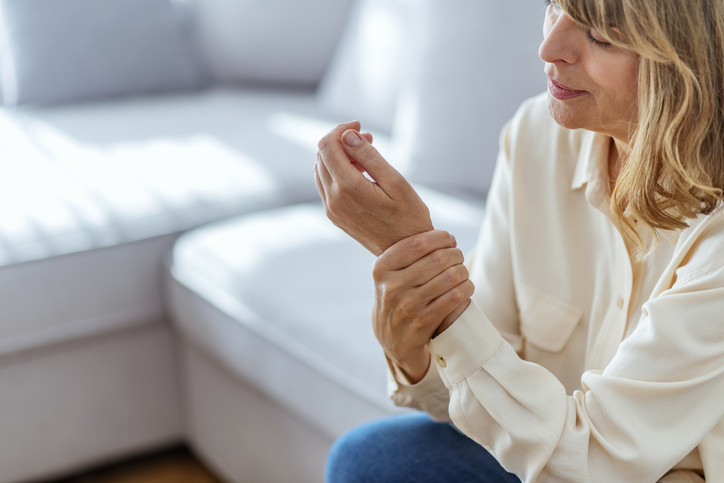
Tips to leverage neuroplasticity to maintain cognitive fitness as you age

Can white noise really help you sleep better?

Celiac disease: Exploring four myths

What is prostatitis and how is it treated?

What is Cushing syndrome?

Exercises to relieve joint pain

Think your child has ADHD? What your pediatrician can do

Foam roller: Could you benefit from this massage tool?

Stepping up activity if winter slowed you down

Common causes of cloudy urine
Bone, Joint & Muscle Health Archive
Articles
Best ways to recover from a muscle strain
Putting excessive stress on muscles can overstretch or tear muscle fibers. The resulting injury is called a muscle strain. The damage could be a small nick or lesion on muscle tissue. In severe cases, the muscle can rip into two separate pieces. If pain isn't severe, it helps to take a break from intense activity, massage the muscle or use topical creams containing menthol, take over-the-counter painkillers, stretch the muscle gently, get enough sleep, eat protein at every meal, and consume lots of fluids. If pain persists, it's best to see a doctor.
The big chill
Many professional athletes and celebrities swear by the therapeutic benefits of ice bathing, which involves briefly immersing one's body in cold water. The science around possible health benefits is thin. Still, fans say the practice makes them feel mentally and physically invigorated and reduces muscle soreness. People can try ice baths by filling their tub with cold water and immersing themselves as completely as possible for several seconds to a few minutes.
Power your paddle sports with three great exercises
Like kayaking or canoeing, paddleboarding provides a serious workout. But before you head out on the water, you'll want to get some key muscle groups in shape, especially ones that probably have not been used much during winter.
The perception of pain
Most people experience occasional acute musculoskeletal pain as part of daily living, such as an injury caused by exercising or a minor household accident. Acute pain is short-term and often becomes manageable with home remedies and over-the-counter medication. However, when symptoms persist there is greater chance that it will become chronic pain, which lasts two to three months or longer. That's when medical advice is needed.
Remedies for hand cramps
The typical causes of cramps in the hands include dehydration and straining the muscles with repeated motions like typing. Low calcium or magnesium or a compressed nerve in the wrist may also cause cramping. Stretching the fingers may help.
Recovering from an ankle sprain
Ankle sprains are common, but they require proper treatment to heal correctly. You should rest for one or two days and use ice to reduce swelling, then begin exercising to regain strength and range of motion.

Tips to leverage neuroplasticity to maintain cognitive fitness as you age

Can white noise really help you sleep better?

Celiac disease: Exploring four myths

What is prostatitis and how is it treated?

What is Cushing syndrome?

Exercises to relieve joint pain

Think your child has ADHD? What your pediatrician can do

Foam roller: Could you benefit from this massage tool?

Stepping up activity if winter slowed you down

Common causes of cloudy urine
Free Healthbeat Signup
Get the latest in health news delivered to your inbox!
Sign Up











